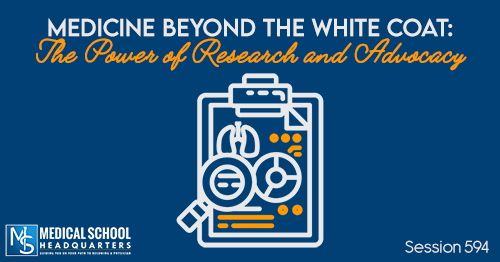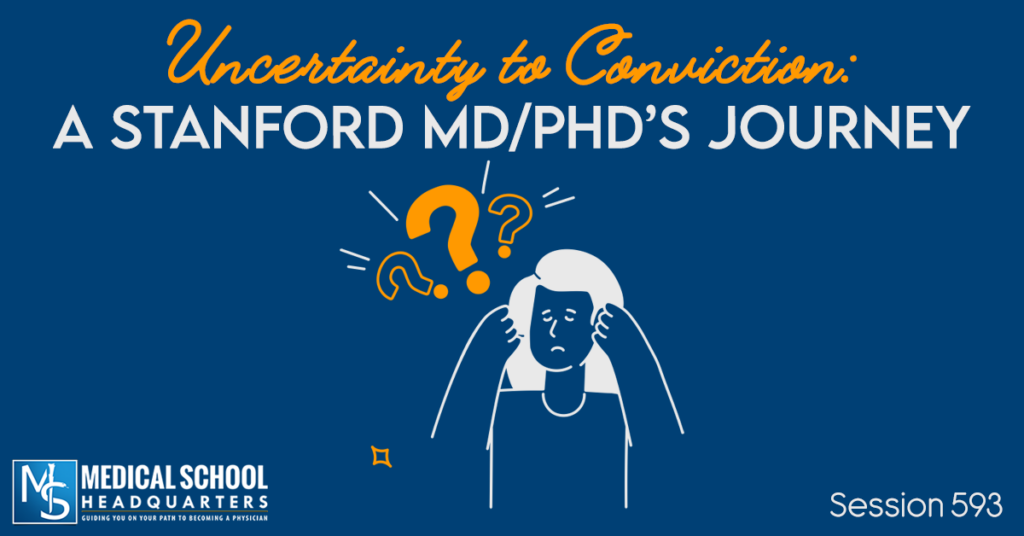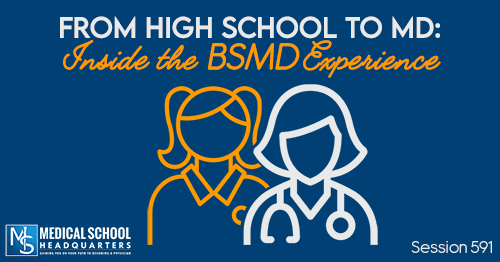Do Your Homework With SDN Interview Feedback.
Although I’m wary of spending too much time on SDN forums (for my own mental health), the Interview Feedback section of the website is a true hidden gem for applicants. Past interviewees post about their experience, including the day’s schedule, specific questions asked, and what interviewees wish they knew beforehand.
This type of information from past interviewees is an invaluable resource—schools like to use the same questions over and over to compare students. Over six different interviews, more than half of the questions I was asked were directly from this website, and thus very few questions actually caught me by surprise.
Over six different medical school interviews, more than half of the questions I was asked were directly from this website.Click To TweetKnow Your Primary and Secondary Applications Cold.
“Admission tip: Best way to prepare for an interview is to re-read your entire application. Most questions will be based on what you wrote!” – University of Michigan Medical Admissions Twitter
A key point I’ve heard from past and present applicants is that interview questions tend to largely focus on an applicant’s file, meaning primary application essays and secondary essays. These essays are the only look schools have at your “personality” up until the interview, and most interviewers will search through your essays for a question to ask.
Note that these interviewers are typically busy doctors or professors who read your essay for five minutes before you walked through the door, so be mindful that they may only cherry-pick what is interesting in your essays. Be the expert on your file, and don’t get caught saying “I don’t know” when asked about your application.
Don’t get caught saying “I don’t know” when asked about your application.Click To TweetHave an Elevator Pitch
One of the most dreaded interview questions is the cold opening of “tell me about yourself.” While most students would prefer a more structured interview format, this is the perfect opening question for a strong interviewee.
One of the most dreaded interview questions is the cold opening of “tell me about yourself.”Click To TweetA well-developed 60- to 90-second introduction statement, or “elevator pitch,” can help set the tone for the rest of the interview, gives the interviewer a range of topics to ask about, and shows that the interviewee is well-prepared. Discuss who you are, what education you’ve gone through, two to three experiences that have influenced you to go into medicine, and why you specifically want to go to their school.
[Related episode: 5 Common Med School Interview Questions and How to Answer Them]
Mock Interviews
It is one of the great ironies of the medical school application process that premeds spend at least 4 years of their lives preparing themselves and their resumes for the medical school interview, only to be told by others not to over-prepare. A variety of people will warn you about the dangers of giving pre-rehearsed lines and of sounding like a robot. Even worse is the ambiguous advice to “be yourself!”
How then, can applicants practice and prepare for the back-and-forth of interviewing without coming off as a pre-rehearsed robot?
A strategy that helped with my interview prep was doing mock interviews with a variety of different people, all with different personalities. I’d give them a cup of coffee and a list of commonly asked interview questions from SDN Interview feedback, but I also told them to ask any other question they felt was appropriate.
Developing your interviewing style with mock interviews
These mock interviews were where I developed my interviewing style, as I could get instant feedback on answers and mannerisms. For example, when I briefly mentioned in passing that I’d like to get involved in healthcare policy in the future, one of my mock interviewers grilled me for five minutes to expose that I didn’t really know much about the topic.
After that experience, I worked on becoming a more disciplined interviewer and sticking to my talking points (and also reading more about healthcare policy). Over time, these sessions allowed me to “warm-up” and walk into my real interviews with confidence.
[Check out Medical School Headquarters’ One-on-One Mock Interviews and our Anytime Mock Interview Platform.]
This guest post is from osteopathic medical student Ryan Nguyen who blogs at WhiteCoatDO.
Links and Other Resources
- Check out my book about the medical school interview: The Premed Playbook: Guide to the Medical School Interview.
- Related episode: Medical Ethics Questions You Can Expect in Your Interview
- Related episode: The MMI: Everything You Need to Know About the Multiple Mini Interview
- Need MCAT Prep? Save on tutoring, classes, and full-length practice tests by using promo code “MSHQ” for 10% off Next Step full-length practice tests or “MSHQTOC” for $50 off MCAT tutoring or the Next Step MCAT Course at Blueprint MCAT (formerly Next Step Test Prep)!







